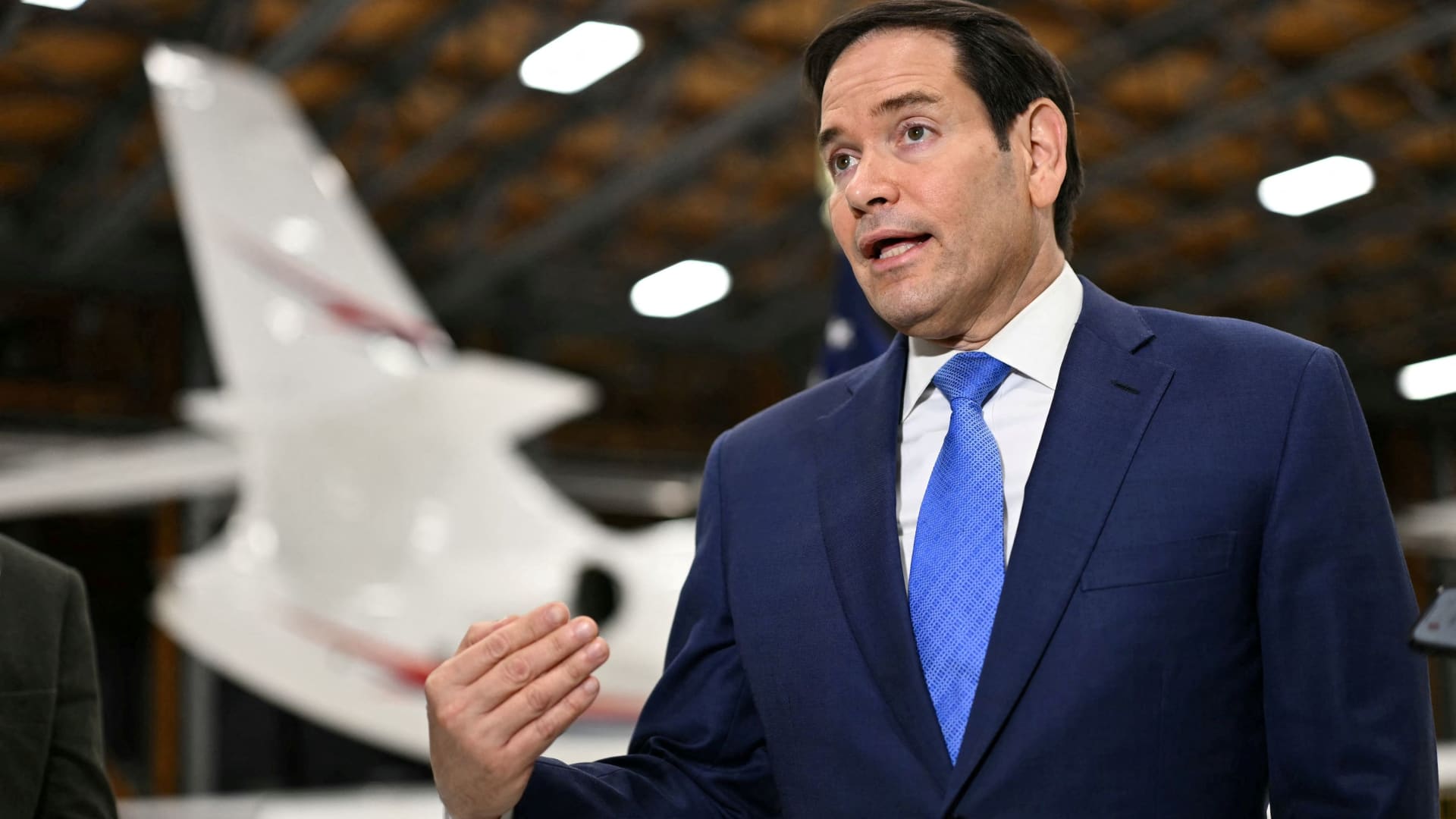Lawmakers critical of President Donald Trump’s approach to ending the Russia-Ukraine war said Saturday they spoke with Secretary of State Marco Rubio who told them that the peace plan President Donald Trump is pushing Kyiv to accept is a “wish list” of the Russians and not the actual proposal offering Washington’s positions.
A State Department spokesperson denied their account, calling it “blatantly false.”
Rubio himself then took the extraordinary step of suggesting online that the senators were mistaken, even though they said he was their source for the information. The secretary of state doubled down on the assertion that Washington was responsible for a proposal that had surprised many from the beginning for being so favorable to Moscow.
It all added up to a confusing — and potentially embarrassing — turn of events for a Trump administration-blessed peace plan that already faced a potentially rocky future.
The widely leaked 28-point U.S.-backed peace plan was, according to the White House, the result of a month of work between Rubio and Trump envoy Steve Witkoff along with input from what it said was both Ukrainians and Russians. The plan acquiesces to many Russian demands that Ukrainian President Volodymyr Zelenskyy has categorically rejected on dozens of occasions, including giving up large pieces of territory. Trump says he wants Ukraine to accept the plan by late next week.
“This administration was not responsible for this release in its current form,” said Republican Mike Rounds from South Dakota, speaking at a security conference in Canada. “They want to utilize it as a starting point.”
Rounds said, “It looked more like it was written in Russian to begin with.”
The senators said they spoke to Rubio after he reached out to some of them while on his way to Geneva for talks on the plan. Independent Maine Sen. Angus King said Rubio told them the plan “was not the administration’s plan” but a “wish list of the Russians.”
The bipartisan group of senators, who are veteran legislators and among those most focused on foreign relations, stood together at the press conference as they relayed Rubio’s message on the call.
Rubio, who serves as both national security adviser and secretary of state, was expected to attend a meeting in Geneva on Sunday to discuss Washington’s proposal as part of a U.S. delegation, according to a U.S. official who was not authorized to publicly discuss the American participants before the meeting and spoke on condition of anonymity.
“The peace proposal was authored by the U.S. It is offered as a strong framework for ongoing negotiations,” Rubio posted on X. “It is based on input from the Russian side. But it is also based on previous and ongoing input from Ukraine,” Rubio wrote.
Tommy Pigott, a State Department spokesperson, said the senators’ account was “blatantly false.”
A senior Trump administration official, who insisted on anonymity to detail internal discussions, noted Saturday night that the White House has consistently maintained that the plan was authored by the U.S. but included input from Russians and Ukrainians.
The official said the plan had always been considered by the administration as a helpful place to start continued negotiations with an eye toward working to a more lasting peace plan.
The senators earlier Saturday said the plan would only reward Moscow for its aggression and send a message to other leaders who have threatened their neighbors.
“It rewards aggression. This is pure and simple. There’s no ethical, legal, moral, political justification for Russia claiming eastern Ukraine,” King said during a panel discussion at the Halifax International Security Forum in Canada.
Putin welcomed the proposal late Friday, saying it “could form the basis of a final peace settlement” if the U.S. can get Ukraine and its European allies to agree.
Zelenskyy, in an address, did not reject the plan outright, but insisted on fair treatment while pledging to “work calmly” with Washington and other partners in what he called “truly one of the most difficult moments in our history.”
In its 17th year, about 300 people gather annually at the Halifax International Security Forum held at Halifax’s Westin hotel. The forum attracts military officials, U.S. senators, diplomats and scholars but this year the Trump administration suspended participation of U.S. defense officials in events by think tanks, including the Halifax International Security Forum.
A large number of U.S. senators made the trip this year in part because of strained relations between Canada and the U.S. Trump has alienated America’s neighbor with his trade war and insistence that Canada should become the 51st U.S. state. Many Canadians now refuse to travel to the U.S. and border states like Shaheen’s New Hampshire are seeing a dramatic drop in tourism.





